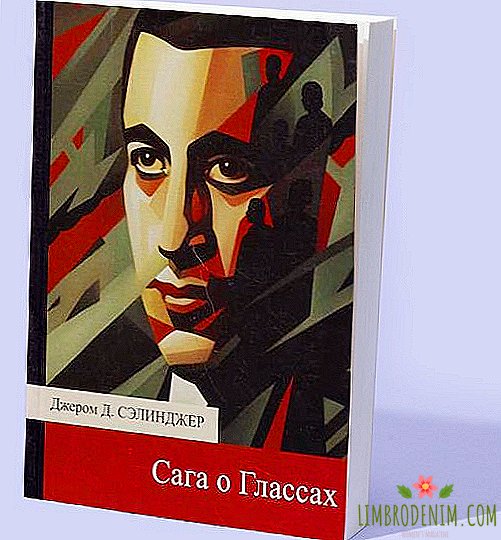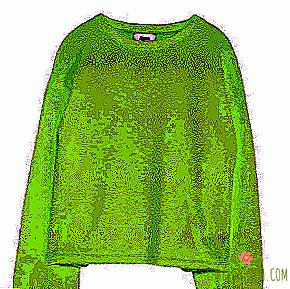Curator of the Polytech Alexander Khazin about favorite books
IN BACKGROUND "BOOK SHELF" we ask journalists, writers, scholars, curators, and anyone else not about their literary preferences and publications, which occupy an important place in their bookcase. Today, the curator of the Polytechnic Museum, Alexander Khazin, shares his stories about favorite books.

"As has always been noted at the beginning of all resolutely writing biographies, the boy was a book eater." This is a quote from Nabokov's favorite "Gift". I started reading books in the most natural way, because the family is very bookish: my mother is a translator from French, my father is from English, and my grandfather, in whose honor I was named, was a writer (there is even a story about the fact that little dad once sat on his knees at Akhmatova). I began my path in literature with the fact that in a year and a half I fished out from under the bed and ate "The Interpretation of Dreams." In a St. Petersburg apartment, where I grew up and where I often return, books are everywhere: they are in the closets from floor to ceiling, on chairs, in the kitchen and now even on the landing there is a bookcase with seemingly unnecessary, but still books.
In my attitude to literature, the turning point was contact with university professors, which began with a preparatory course in the 11th grade. There was Russian literature at Arina Mitrofanova, who was pounding the table with her hand and telling about the classics that had become sick of teeth with such passion that all Lizonka and Masha still seemed to be sitting at the same desk with me. Then I studied in the philological department, where I suffered from the inflexibility of the system at the department of French and ran for Boris Averin’s lectures or sat in the evening at the department of foreign literature at some very heavy hermeneutics seminar. The study presented several completely fateful meetings related to the humanities, and they changed me forever.
In my student years, falling in love, I gave a person to read something from his beloved to check the reaction. Having moved to Moscow, I settled closer to the media library of the French Institute to take books from there. I believe that one day I will get tired of working with people and return to this philological world of pure knowledge, but for now I’m a curator at the Polytechnic Museum and at the same time writing articles about movies, so my reading kit always looks somewhat schizophrenic: for example, now I’m I read Jung's autobiography, "The Physics of the Impossible," by Michio Kaku, "After the Method," by John Law and a collection of interviews with Melville.

As Umberto Eco says, unread books are much more important - this is our horizon of possibilities.

I always have several books in parallel, plus The Prime Russian Magazine, which I read from cover to cover. I always try to read: in the subway I read Bookmate from my phone, at home before going to bed, on trains (and I love them for that), and from recent time I take one weekend off a week to have a long and tasty breakfast with a book in my hand. Now everything is quite bad: poetic collections are attached to the standard set of women with intellectual throwings, because in August I accidentally bought a book by Lukas Mudisson "From 16 to 26" - and this magnificent discovery returned me my love for poetry, about which I somehow periodically I forget.
I prefer to read from paper, although the nightmares of moving the library from place to place experienced in full, moving between St. Petersburg, Paris and Moscow, after which I renounced to go into the bookstores. I did not last long: wherever I lived, my room was always filled with very heavy dusty piles, and I did not read most of the publications. As Umberto Eco says, unread books are much more important - this is our horizon of possibilities, our research tool. They give me books, I buy books in beautiful bookstores ("Word order", "Falanster", "Subscriptions", museum stores). One day I will calm down, I will have my own house, and there I will gather all the pieces of the library scattered in different cities and I will sit on them like Koschey.
It is difficult to collect ten loved ones, because I chose to make a selection of books with which I had a personal relationship and which are close to me so far. Such incredible meetings have happened in my whole life: starting with the childhood revolution - “Mitya's Love” by Bunin, who made me a real drama queen at fourteen, then accidentally bought a novel by Danish writer Jens Christian Gröndahl “Silence in October”, a collection of poems by Cortasar The "Fugue of Death" by Paul Celan, accidentally heard, and much more. This is, perhaps, the main thing - quite intimate and completely precious.

"Moron"
Fedor Dostoevsky
There are writers for whom love is quite difficult to speak precisely in view of their reproduction and superclass status. The apotheosis of such "complicated relations" for me Brodsky and Nabokov are very beloved authors who have recently been so captured with dirty hands that it is embarrassing to talk about their feelings towards them. It was the “Idiot” who formed the image of his beloved hero for the rest of his life - a person who was unable to integrate into the world around him and accept his “wrong rules”.
It is his in different variations with fluctuations from oligophrenic to serial killer, I will meet further in all the books that will become loved. The very same Dostoevsky's novel for me became the bible that I reread every year, it’s such a tuning fork of my own ability for feeling and attitude ... has my heart become stained? " And then I read "Idiot", and it returns me to some more correct path.

The Saga of the Glass
Jerome David Salinger
At the philological department, I avidly listened to all the courses in English-language literature that I could attend, one of which was Andrei Astvatsaturov's seminar on Salinger that became famous. I have never been a special fan of "The Catcher in the Rye", but here I found for myself something fundamentally different - the intractable conflict of intelligence and narrow-mindedness, brilliant aesthetic feeling and vulgarity, depth and superficiality. Here there is a mysterious figure, which is forever imprinted in the reader's heart precisely by the uncertainty and grace of the sketched portrait, the elder brother Simor is the most talented, wittiest, “admiral and navigator” who is too good for this world and for which happiness turns out to be something too petty bourgeois.
The deafening effect that Salinger produces is also good because his works are difficult to analyze. The philologist's happiness and sorrow is to disassemble the text into intertexts, allusions and theories, revealing new meanings, but destroying the crystal tower of a first impression, when everything seems to ring from the shock of first reading. In the text of Salinger you can bite to infinity, discovering both Freudianism and Taoism there. However, since Salinger was silent all his life about his works, it is more logical not to say anything about their theoretical component. Everything will turn out to be speculation: everything that we could find out, Simor had already told us before he put a bullet in his forehead.

"Noise and Fury"
William Faulkner
I have always loved the game with the form, where the reader becomes a player. Here you can talk a lot about Cortazar, Joyce, and more formalist experiments such as your favorite ULIPO. On the other hand, I have always been interested in various experiments of introspection and internal monologue, here I could compile a separate compilation. (Virginia Woolf's “On the Lighthouse”, for example, is one of the very dear to me books.) But for me the most beloved in both these categories is “Noise and Rage.” Perhaps, if the list could consist of only one book, I would call it the strongest and most terrible, because every time I re-read it, it leaves the effect of a slap, some kind of horror, touching someone else’s curse.
Faulkner invented a new territorial unit: the non-existent district of Yoknapatofa is the quintessence of the American south with its resentment, prejudice and patriarchal spirit. I don’t want to talk about the plot (it’s not) and I don’t want to talk about the content in principle, because I still believe that someone hasn’t gotten to it yet. I just remember what I experienced when I read it for the first time: "What is this at all? What is this all about?" - I said to myself, not understanding a word and falling farther and farther into the text, which from the first pages is like a muddy dream, such words clinging to each other and meanings. I remember that I just read it two times in a row, almost without stopping, and since then it has become almost my talisman. I must say that it is brilliantly translated into Russian, and both the original and the Russian translation are valuable to me (which is a rare case).

"The Adventures of Tintin"
Erzhe
These are the books on which I grew up - the adventures of a young reporter Tantan with a small dog named Melok, and I remembered these heroes in this version, because that was the name of the first Russian translations that were published in the 90s by the French publishing house Kasterman ". Tantan was something between the role model (brave, resourceful, intelligent!) And the first image of an ideal man (everything is the same + boy and beautiful). Now I think that Tantan is an ideal book for maturing children: on the one hand, it is beautifully drawn, on the other hand, it seems to be not quite a children's book, but real, exciting stories based on real phenomena. For example, it was from “The Adventures of Tintin” that I learned who such smugglers are and what drugs are.
On the other hand, a lot of things were confusing there, because in some places absolutely fantastic phenomena arise: for example, in one of the books Tantan falls on a planet where giant toadstools grow, and in the other, it seems, "Seven Crystal Balls", in the museum the ancient Egyptian mummy comes to life. For me, everything real and unreal was confused in my head - and now, flipping through Tantana, I remember that time of constant questions about the universe.

"Book of Monel"
Marseille Schwab
I speak French and was engaged in literary translation and theory, which led to a disappointing conclusion: with rare exceptions, translated works always seem to me to be new text “based on” the original - and the question is already in the artistic talent of the translator. There may be their own incredible discoveries: Baudelaire's Albatross in Pasternak’s translation, the great poem “To the glass with a face ...” of Eluard, which is as ingenious in the translation of Maurice Waksmacher as in the original… Balmont, but I consider it an almost impossible task, although I opened the book precisely because of a familiar poet who undertook to translate it into English.
The Book of Monel (1894) by Marcel Schwab, a half-forgotten French writer and symbolist poet, is written in prose verse and in a sense is the founder of this method in large forms (at least, Andre Gide borrowed it for Earthly Meals). "The Book of Monel" is a story of girls of easy virtue who are simultaneously such priestesses, Scheherezadas, setting forth a philosophy like a secret cult, where withering and near death always stand somewhere alongside the opportunity to enjoy the moment. This is a magnificent, completely brocade text, imbued with incredible sadness: there is a version that Schwab wrote the Book of Monel after the death of her beloved, who became the prototype of the heroine and her friends.

"Monster"
Emmanuel Carrer
Emmanuel Carrer - the name of the first line of modern French prose writers and the author, whom I read almost everything. I have two of his favorite books: "The Fiend" and the "Winter Camp" that had sprung from him, written in the process of working on the novel. About the "Fiend" you need to know the most important thing: this is the real story. This book is an attempt to analyze the case of Jean-Claude Roman - a cardiologist, an employee of the World Health Organization, a loving father and husband who killed his wife and children one morning, ate barbituric tablets and set fire to the house.
He was saved, and it turned out almost impossible: Roman was never a successful doctor and WHO employee, but pretended to be him, his life went on a spiral of endless lies from the moment he did not pass university exams in the second year. In the morning he wore a suit and after breakfast he left the house with a briefcase and sat in the car all day, sometimes he flew to Geneva on business trips and returned from there with booklets, in general, according to all the external signs, he completely corresponded to the chosen role. His lie lasted - attention! - 18 years, and would have lasted longer, if the problems with debts had not begun to draw on third-party suspicions.
The story of this hero is terrible because in it, willy-nilly, you see some echoes of yourself: Roman - a man who, in his weakness, could not cope with failures, did not fit into the strict requirements of the “learn-marry-work” pyramid and who was simply milled millstone cruel reality. It is impossible to be a failure, but it is much easier to meet some empty external indicators than to solve problems, it is easier to kill than to unravel a tangle of many years of lies.

"Everything"
Alexander Vvedensky
This is the great, the only complete collection of Vvedensky’s works to date, tiny and collected bit by bit: photos, memoirs, analytical articles, interrogation protocols and acts are added to it. The book was published in 2011 and is still on the shelves of the stores, but I opened it a little later - reading the books of Vladimir Martynov, a big fan of obariuts.
For me, Vvedensky is some kind of over-literature, something more than poetry. Vvedensky seems to just dock the cubes of words, moving away from poetic means, and at the expense of infinite oxymorons, the effect that you least expect is born: "the shoulder must be tied to four." The effect can be different - it can be a sense of absurdity, and terrible breathing of something gravestone, and some feeling of music or prayer ... Sometimes you just want to laugh: Vvedensky is free with words like little children who learn to speak and rhyme incompatible.

"Stoner"
John williams
This book was presented to me by a journalist Lesha Papperov for my birthday: I opened it almost by accident the very next day and read avidly for one day, closed it and cried for half an hour, leafing through the last chapter. This is a novel of strange fate: it was released in 1965 and went unnoticed (perhaps because Nabokov's Pnin had earlier thundered — another novel about a university professor). In 2011, she fell in love with him and translated into French by Anna Gavalda, and only then Stoner received the recognition of the greatest work - alas, having outlived its author.
This is a novel in which nothing happens and at the same time there is a whole life of William Stoner, the son of farmers, who goes to study at an agricultural college, but finds his vocation in English literature and gives his life to serve it. We carefully pass through the life of Stoner, which flows on the university campus - a fragile fortress, inside of which the signs of time still reveal themselves: imprints of a distant war, which takes teachers and students away or inevitably returns them to others. But Stoner's way is different. His whole life is immaculately honest and humble, it is only a small grain in science and a few well-known milestones of a short obituary, but at the same time it is the embodiment of the dumb fight against evil, which is perhaps more important than any open war. This is a great book about futility, death, and loyalty to yourself.

"Douleur exquise"
Sophie calle
When I let go of myself and realized that I would still spend a lot of money on books, I started buying art albums too. Sophie Kall is a modern French artist and photographer who works a lot with intimate and autobiographical material. I don’t always like public revelations of the hidden things, but this project resonates with some of my personal aspirations to always artistically furnish the most painful reality.
The story is this: Sophie gets a scholarship to work on a project in Japan and leaves Paris, making an appointment with her lover in India. She counts the days before their meeting and keeps a photo chronicle and diary, recording her journey through Russia, her lovers, views from the windows, purchased clothes, walks in Japanese gardens. After 92 days, she arrives in India and finds out that her lover had left her - he did not come. To get rid of the pain, she asks people to tell her about their deepest suffering and keeps a new diary - a diary of pain stories that helps to cope with her own grief.
I love this project for its cinematography: it unfolds beautifully in time to "before the pain" and "after the pain." In addition, he really makes a banal history of the gap an act of art, highlighting it from other stories, but not rising above them: so, for each of us, our own pain seems unique, whereas in reality there are an infinite amount of loss and grief stories. And here we see them: in the second part we can read stories about the disease, deaths and breaks, which at the same time equalize us all with each other with our ability to experience the most severe devastation - and still survive it.

"A History of the World in 100 Objects"
Neil Macgregor
I work in a museum, and not an art one, but precisely in such a museum, which is connected with the formation of ideas and storytelling.The History of the World in 100 Objects is an absolutely amazing project of the BBC and the British Museum (and, in particular, its now former director Neil McGregor), which with some incredible ease runs from the Stone Age and the first tools to the modern world with credit maps and solar panels.
The project is based on items from the collection of the British Museum - the Egyptian mummy, the Mesopotamian cuneiform tablet, a Roman coin or a statue from Easter Island - but, preserving quite a material starting point, it gives a completely invaluable global vision of humanity - a kind of bird's-eye view of world history. For me, this is an example of an absolutely amazing work with a museum collection and the presentation of the most complex global ideas in an accessible language. In addition, this book is incredibly expanding horizons - any chapter of it gives me a desire for self-improvement, learning, new discoveries. This is really a very inspiring book-trip, causing a desire to immediately go in search of treasure, and, of course, buy a ticket to London.






